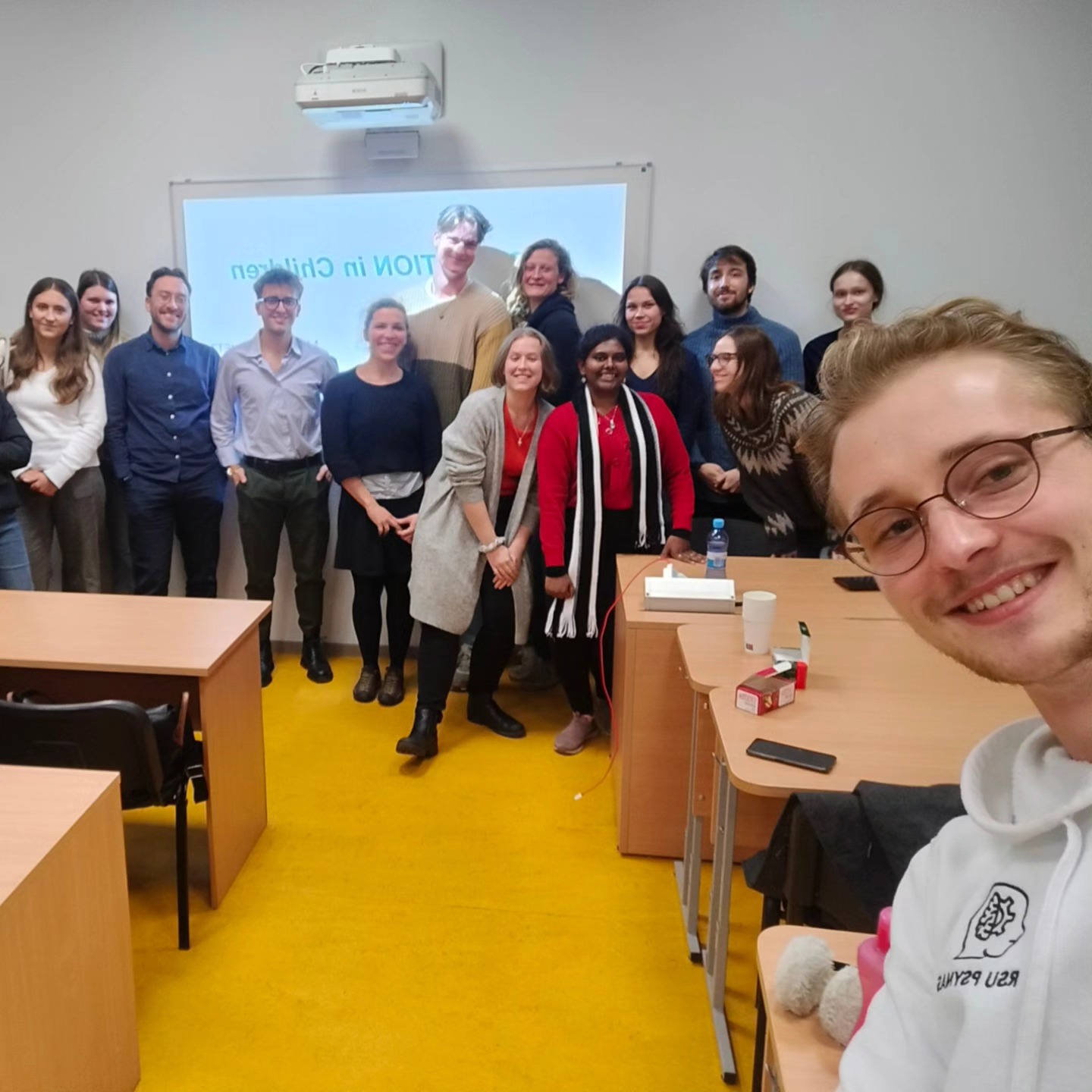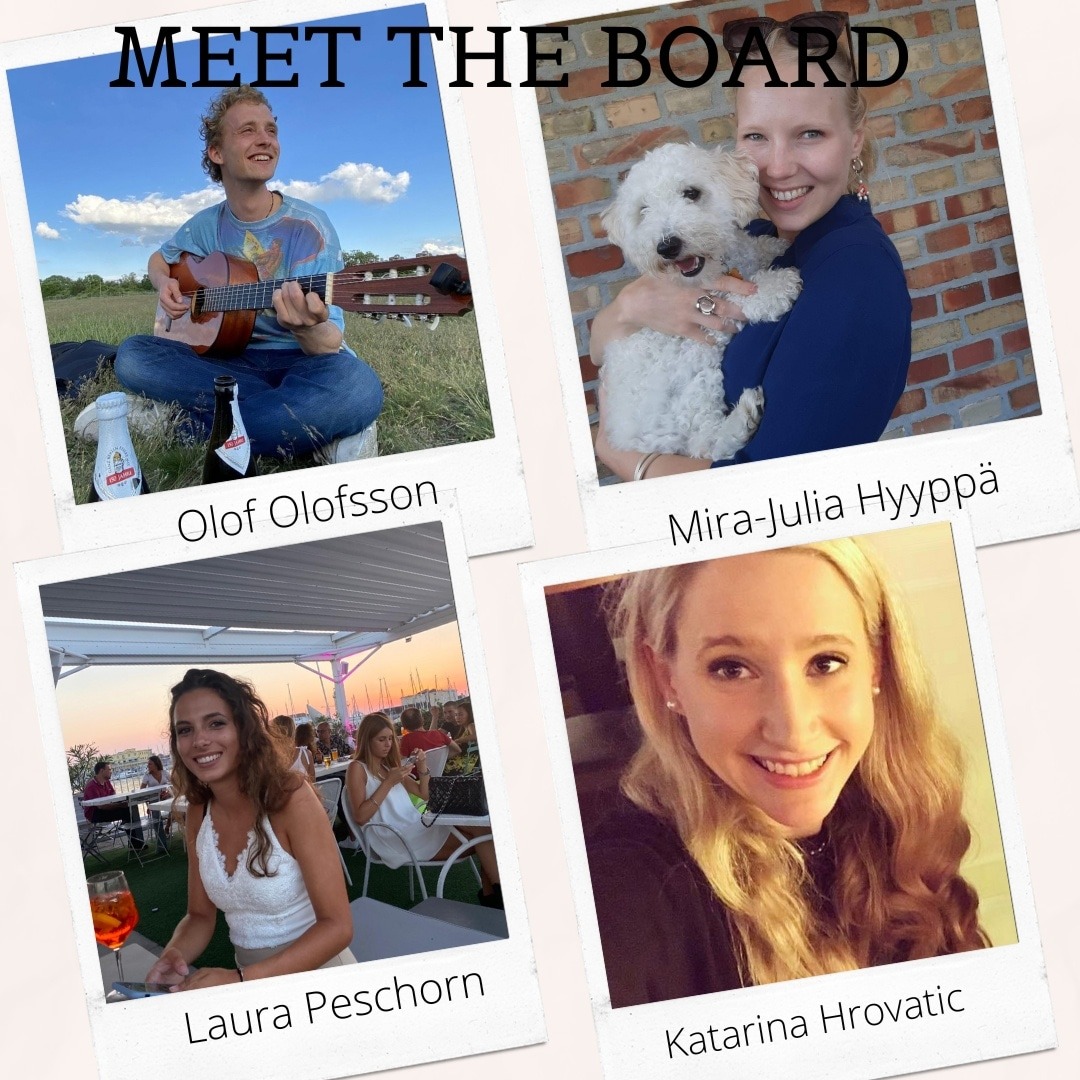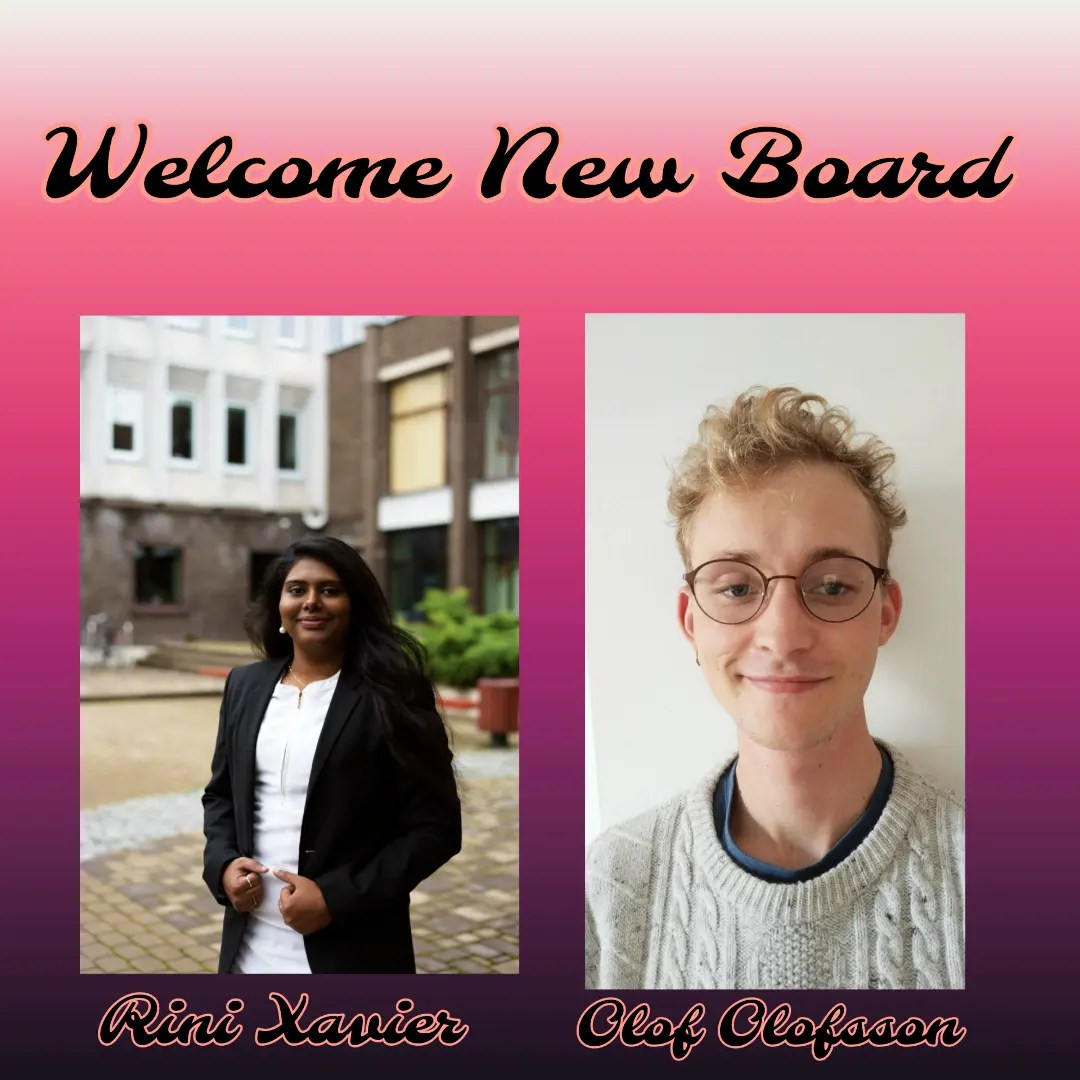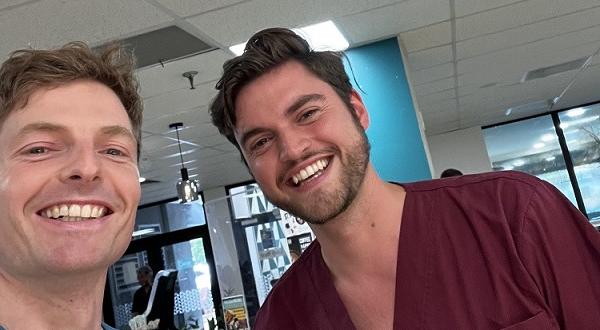Student Snapshot: Finding meaning and making connections by researching psychedelics
Olof Olofsson is a Swedish student currently in his 9th semester of medical studies at Rīga Stradiņš University (RSU). He founded the academic society dedicated to psychiatry and addiction medicine, Psychiatry and Narcology Academic Society (PsyNAS), in 2020 together with three other students.
How did you become interested in psychiatry?
I had an interest in psychiatry already before my studies due to personal reasons. I lost a sister to suicide, and I think that when something like that happens, people generally have one of two responses: you either shy away from everything associated with mental illness, or you move towards it to try to gain a better understanding. I think that everything that I am studying here is interesting, because I try to make it interesting, but through the method of deduction it became clear to me that psychiatry is what gives me the biggest sense of meaning. When I'm not in Riga, I work in different psychiatric wards in Sweden.
How does your society work?
Part of our structure is to organise theoretical meetings for our members where students from different semesters give presentations on a variety of topics. Mentors, psychiatrists, and addictions specialists attend our meetings to provide feedback on the presentations, but primarily to guide us and lead discussions after the presentations – this includes psychologist Mārtiņš Ennītis and paediatric psychiatrist Ņikita Bezborodovs. The discussions are the highlight for me.

Olof Olofsson (far right) at a PsyNAS meeting
It's amazing to be in a room where everyone has the same interests and goals. We support each other.
Everyone has different experiences and therefore different knowledge, so everyone can contribute something.
What are your future goals within this field?
My goal is to work with patients as a clinician, but before that, I want to contribute to the collective knowledge in psychiatry.
The specific topic that I'm interested in researching is psychedelic-assisted psychotherapy, which is a field that restarted about 20 years ago. It is a therapeutic approach that combines the use of psychedelics (a subclass of hallucinogenic drugs) and psychotherapy for the treatment of various mental disorders.
It's been deregulated for a long time, but the field is now starting to pick up speed again. There are many new treatment modalities that are opening up in this field.
How do individual countries’ laws around drugs affect your field?
I'm aware that Latvian regulations are quite strict; the way in which this field overlaps with societal norms and expectations is an interesting aspect of psychiatry that carries over to research as well. In America, for example, the US Food and Drug Administration (FDA) has conducted phase IV trials in treating major depressive disorder and end-of-life anxiety with psychedelic drugs. Johns Hopkins University in the US has conducted quite a lot of research on this, and Zurich, Switzerland, is a hub for this field.
What is the situation in Sweden like? What would your opportunities for practical research be there?
As of now, there are no clinical applications of psychedelics yet, but the Karolinska Institute in Stockholm and Sahlgrenska University Hospital in Gothenburg are conducting research. The results are very promising.
Right now, it looks like the inevitable result is that psychedelic-assisted psychotherapy will be applied in clinical practice, which is heartening.

This offers a new treatment option but should not in any way replace existing treatments. The use of psychedelic drugs should act as a complement to what we have as many patients are sufficiently helped with what we have right now.
What is it about this field specifically that you would like to conduct research on?
What I'm interested in specifically is the applications of psychedelic-assisted psychotherapy within end-of-life care, so in palliative patients. Right now, as a society, we talk very little about death. I think that me just saying this word evokes an instinctive feeling of unease.
It is self-evident that the ego does not wish to cease to be, which can result in a lot of anxiety. With the help of trained physicians, psychologists, sociologists, nurses, and mental caregivers, I think that we can open the mind to a feeling of interconnectedness.
Many patients in these research trials have expressed that they experience a sense of interconnectedness with their surroundings and a feeling that we are more than just our egos, that to die does not necessarily have the meaning that we normally place onto it.
Life started billions of years ago and it will not cease after an individual dies. In my opinion, these medicines can help us to see and comprehend the bigger picture, which can lessen end-of-life anxiety.
What are you planning on doing after graduation?
I plan to do my PhD wherever I can. I will not bind myself to one country. Through my fiancée, who is German, the country of Germany has opened up to me. That's actually where I'm planning to do my dissertation as a psychiatrist.

The PsyNAS board in 2023

The PsyNAS board in 2024
How did you feel about the studies at RSU when you first arrived to study here?
Initially, I very much correlated my sense of self-worth with my grades. I tried to be a perfect student.
It was difficult in the beginning because international students have two factors that are very stressful: there is the academic workload, but on top of that is the feeling of displacement from your home country. Being in a in a new environment is very, very stressful. I have found a new social context, a new home within the university, and I have made new friends from all over the world, which has alleviated the feeling of displacement.
RSU has given me a sense of internationality, that people from all over the world are not so different if we work towards the same goal.
Regarding the workload, it was initially much higher, but it gets easier with every semester, because you have a stronger knowledge base to stand on. You know more and more, and that makes it easier the further up you go. I think that knowing that I want to become a psychiatrist makes my studies easier, because I already have a goal in mind.
What would you say to someone considering starting their studies here?
There are very many different paths that you can take within medicine, but you don't have to be an expert in everything. Find what's interesting to you and draw influences from other fields in medicine – it's all interconnected. Similarly, as with psychedelics!
If you can find connections that are relevant to what interests you, anything can become interesting.
Related news
 From RSU to New Zealand: A surprise reunion on the other side of the worldStudent Snapshot, For Students
From RSU to New Zealand: A surprise reunion on the other side of the worldStudent Snapshot, For Students


